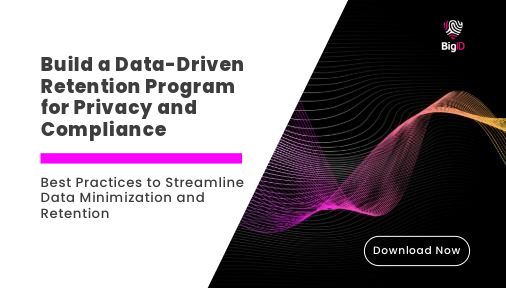The saying is true. Things are indeed bigger in Texas, even the data privacy fines. In a landmark moment for data privacy enforcement, Google agreed to pay $1.4 billion to settle a sweeping lawsuit brought by the state of Texas, which accuses the tech giant of deceptive practices related to incognito web searches, biometric data, and the collection and use of geolocation data. The settlement with Google is the largest settlement ever obtained from an action brought by a single state for data privacy violations.
While headlines focus on the massive dollar figure, the deeper story is about the growing risk of noncompliance, the importance of transparent data practices, and how businesses must change how they approach consumer data.
The Crux of the Case: What Went Wrong
The core issue in the Google case wasn’t a flashy hack or security breach—it was a fundamental failure in transparency and consent. The state claimed that Google was “unlawfully tracking and collecting users’ private data.”
- Location Tracking Without Consent: Texas argued that Google misled users into thinking that turning off location tracking meant opting out of collecting location information. However, this was not the case, as Google continued to capture information through other settings.
- Collecting Biometric Data: Google gathered millions of biometric identifiers—such as voiceprints and facial geometry—from users through services like Google Photos and Google Assistant.
- Unclear Privacy Controls: The lawsuit claimed that Google buried or obscured privacy settings, making it nearly impossible for users to understand what data was collected or how to stop it.
From a compliance perspective, this highlights serious missteps around data minimization, transparency, user consent, and purpose limitation—all pillars of modern data privacy regulations from the General Data Protection Regulation (GDPR) to the Texas Data Privacy and Security Act (TDPSA) and beyond.
This lawsuit underscores the danger companies face when data practices lack transparency. Users need to know what data is collected, how it’s used, and what control they have. Without that clarity, organizations risk lawsuits, fines, and lasting damage to their reputation.
How BigID Helps Avoid Costly Data Compliance Mistakes
Google’s $1.4 billion penalty is a loud reminder that compliance gaps carry a price—financial, reputational, and legal. Proactive, automated, and accountable data management is the only way forward. BigID empowers organizations to move beyond reactive compliance and into a world of privacy by design—minimizing risk, building trust, and staying ahead of regulators.
BigID is the industry-leading provider for data security, compliance, privacy, and AI data management that helps organizations find, manage, and secure personal and sensitive data across their environment. With BigID, companies can strengthen compliance with privacy laws and avoid the kinds of missteps and regulatory risks seen in the Google case.
That’s where BigID steps in:
Data Discovery and Classification
BigID uses advanced machine learning to automatically discover and classify sensitive data across your entire environment—structured or unstructured, on-prem or cloud, providing the visibility and insights needed to know exactly where your users’ personal and sensitive data resides and ensure it’s being processed legally.
Policy-Driven Consent Management
With BigID, organizations can operationalize consent policies by tying them directly to data flows to enforce user preferences across the data ecosystem, which prevents unintentional over-collection.
Data Rights Fulfillment
BigID streamlines and scales data subject requests with AI-driven workflows to respond to access or deletion requests. Automated end-to-end workflows enable organizations to efficiently comply with data rights under various privacy laws.
Privacy Impact Assessments
With BigID, organizations can manage, monitor, and validate risk with Privacy Impact Assessments (PIAs), which provide insights into data processing activities to fulfill compliance requirements for many privacy laws.
Data Minimization and Retention
BigID helps organizations implement data minimization strategies by identifying redundant, outdated, trivial (ROT) or unnecessary data to reduce the risk of excessive personal data and ensure compliance with retention policies.
Unified Privacy Dashboard
BigID provides real-time visibility into privacy posture, fulfillment metrics, risk exposure, and compliance alignment – all in one place.
Discover, automate, and operationalize privacy with BigID. See BigID in action!

